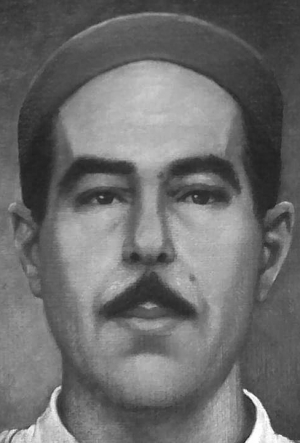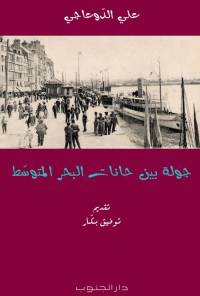Douagi was born to a wealthy family of Turkish origin in the city of Tunis in 1909. He received his primary education in a neighbourhood school where he learned both French and Arabic. Upon completing his primary education, his mother encouraged him to pursue a career in business, and for a brief period he worked as an apprentice for a local merchant. He then decided to immerse himself in French literature and culture. Douagi came to be associated with a group of artists and intellectuals known as the “Jama’at taht al-sur” (The Beneath-the-Wall Group), who congregated nightly in the cafes of the Bab Souika neighborhood to exchange ideas and argue politics. The group was committed to creating a modern Tunisian literature and culture that would denounce European colonialism and the cause of social justice and economic and social equality. Douagi’s work was also experimental and he was especially known for his versatility as a sketch artist, songwriter, playwright, and short story writer.
His Turkish roots and his mastery of the French language, as well as his bourgeois background and financial security, all played a part in crafting a vision of himself and his work. Douagi often depicted and fantasised romanticised strokes of east-west encounters. Hence, his stories depicted a peaceful coexistence in which differing cultures and religions coexist. This philosophical stance regarding east–west encounters dominated from his earliest writings. He wrote 15 plays and composed nearly 500 songs and poems. He is best remembered as “the father of the modern Tunisian short story”.

